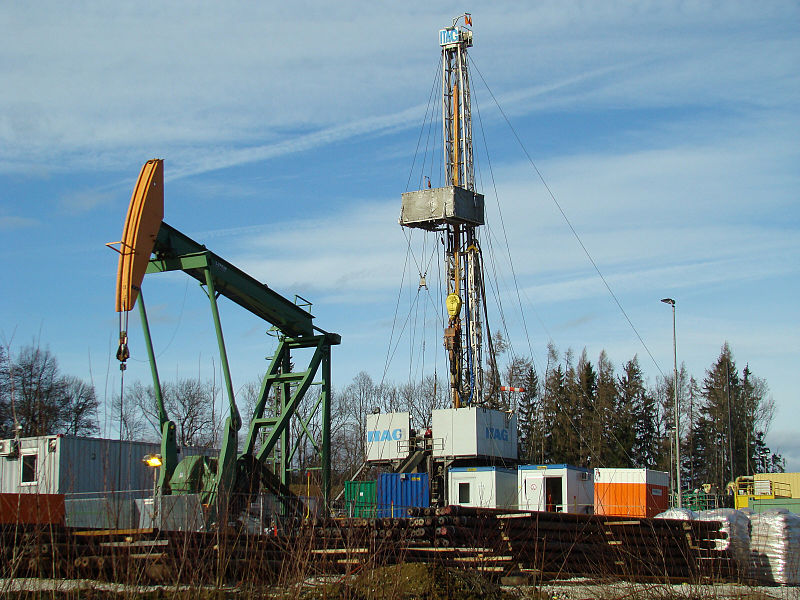US, Saudi, OPEC blamed for lowing oil prices to hurt Russia, Iran
Why are gas prices dropping? How low with the price of oil fall? Questions that the most ignorant American may be thinking as they see prices plunge lower and lower.
Even as prices began dropping, fingers pointed quickly at the Saudi regime, which has used their power to manipulate the prices for geopolitical reasons. Vladimir Putin and others are calling out the U.S., claiming that this is a conspiracy to hurt the Russian economy or even crash the ruble.

Oil prices are dropping, so who are the winners and the losers?
Photo/Tech collector via wikimedia commons
Oilprice.com notes that “We don’t have to look too far back in history to see Saudi Arabia, the world’s largest oil exporter and producer, using the oil price to achieve its foreign policy objectives. In 1973, Egyptian President Anwar Sadat convinced Saudi King Faisal to cut production and raise prices, then to go as far as embargoing oil exports, all with the goal of punishing the United States for supporting Israel against the Arab states. It worked. The “oil price shock” quadrupled prices.”
While some economists claim that the cheap fuel is still believed to be providing an overall boost to the US economy, consumers are spending less on gasoline and more on shopping and services, thousands of high paying jobs in oil-producing states (Texas, Alaska, Oklahoma, Louisana) are getting laid off, the New York Times reports.
Conventional oil producers are not the only ones affected by falling oil prices. The energy crisis has also hit shale production and green energy in the US, Marin Katusa, chief energy investment strategist from Casey Research told RT.
“In America most of the green energy, whether you talk about solar or wind, the technologies aren’t cost efficient yet without government subsidies,” said Katusa, detailing how the oil companies will cut research and development, there will be lose funds for deep sea drilling and new “green” projects will no have the funding needed to see the light of day.
If the Saudis wanted to stabilize the price of oil, they could do that immediately by announcing a production cutback.
The fact that they have chosen not to do this says volumes.
“Above all, Saudi Arabia and its Gulf allies see Iran — a bitter religious and political opponent — as their main regional adversary…They know that Iran, dominated by the Shia Muslim sect, supports a resentful underclass of more than a million under-privileged and angry Shia people living in the gulf peninsula — a potential uprising waiting to happen against the Saudi regime,” the Daily Mail asserts.
“The Saudis, who are overwhelmingly Sunni Muslims, also loathe the way Iran supports President Assad’s regime in Syria — with which the Iranians have a religious affiliation. They also know that Iran, its economy plagued by corruption and crippled by Western sanctions, desperately needs the oil price to rise. And they have no intention of helping out,” the article states.
Winners and losers…yes, and the first to fall may oil producing state budgets, quickly falling short.
According to the NYT, approximately 90 percent of Alaska state’s budget is formed from oil revenues. Alaska’s government is considering a 50 percent capital-spending cut for bridges and roads in the face of the oil price drop…Louisiana’s 2015-16 budget is going to be $1.4 billion short, with 162 state government positions already eliminated and more to be discontinued starting from January. Contracts and projects are being either reduced or frozen in state agencies…In just October and November Texas lost 2,300 oil and gas jobs, the federal Bureau of Labor Statistics reported last week. Through the last half a year the state has been losing $83 million in potential revenue every day, the Greater Houston Partnership recently reported.
It would worth noting that these states had a strong swing in victories for the GOP in the midterm election, which may not have gone unnoticed by the White House, DNC.















